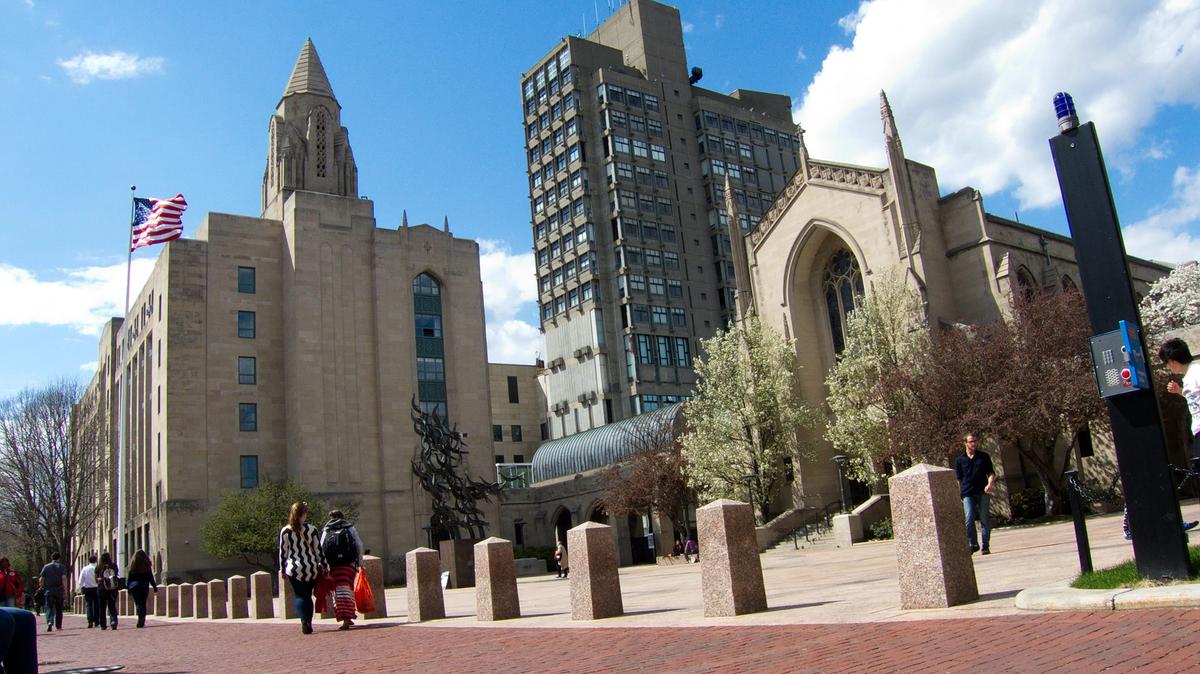As hundreds of universities across the US are forced to shift classes online and as arts studio programmes and workshops are compromised due to the coronavirus (Covid-19) pandemic, students are mobilising to demand the full or partial reimbursement of their tuition. Few efforts, however, have yielded positive results, to the financial devastation of many students.
At Boston University—where tuition costs more than $27,000 for full-time students enrolled in the 2019-2020 academic term—visual art students in the Master of Fine Arts (MFA) programme are one of several groups on campus who have been working to negotiate a refund. This week, they were told that the university president “will not grant our request”, according to a statement forwarded to The Art Newspaper.
Indeed, a letter containing the signatures of more than 80% of students in the programme was rebuked by school representatives last month. “It is in the opinion of the school that, despite not having studios or workshops, our Zoom meetings mean we are still receiving a studio education,” the student organisers say.
They argue that the education being offered “is not transposable to the programming we originally enrolled in—especially in such a short period of time—and students in our last semester have lost critical opportunities, such as final reviews of our cumulative work and thesis exhibitions”.
The university has proposed potentially pushing thesis exhibitions to the fall semester, but this solution does not solve problems for international students with issues of visas and health insurance, nor students who could not afford to remain in Boston for an extended period of time with its incredibly expensive rent, according to the students. Moreover, the university's dorms were evacuated and closed last month as the institution shut down due to coronavirus, displacing many.
“Not all of our cohort even has access to computers or reliable internet connection, let alone stable housing or capacity to generate any kind of work,” the students say.
Meanwhile, students at the Savannah College of Art and Design, where tuition cost more than $38,000 for the 2019-2020 academic term, have launched a website to evaluate the impact of the pandemic on students and demand partial refunds. A survey found that 97% of students disagree that online classes can be equivalent to in-person classes, and that 92% of students believe that the school should provide refunds for the spring quarter.
A representative for the initiative says that the school “has yet to address the project and has shown no interest in negotiating fees reimbursement nor addressing the student body’s concern”, and that, although the community has taken a cordial approach to implore the school to take into account the students’ demands, “we still have not been given a direct answer”.
On 26 March, SCAD students recorded a meeting with the university ombudswoman, Sophia Alletto, intended to address their concerns, in which Alletto states that there will be no reduced tuition fees.
“You’re still paying for the credit hours that you would any other time, you’re still paying for the housing whether on-the-ground or not and you’re still paying the faculty to teach the classes, so all those things are what your tuition goes into,” Alletto says in the recording, to which a student responds: “So basically I subscribe and go with it or I go home, which is not an option right now.”
MFA students from Yale University’s School of Art, where tuition costs more than $39,000 for the 2019-2020 term, are also calling for partial tuition refunds, as The Art Newspaper reported last month. Students of the Rhode Island School of Design, where tuition costs more than $50,000, have gathered more than 1,000 signatures in a petition calling for the partial refund of tuition and fees, and have also launched a fundraiser for low-income students at risk during the transition. And students of the New York University Tisch School of the Arts, where tuition costs on average more than $30,000, have also launched an ongoing document containing personal testimonies arguing for partial refunds.
Boston University MFA students are continuing to push the school for some sort of resolution. They say: “We are devastated at both the pandemic all around us, touching some of us on a personal level, as well as the deep loss we are suffering through the university’s closing. We made immense financial and personal sacrifices, as well as commitment of time, to participate in this unique programme and will continue to pursue our reimbursement. So far, there is no solution which provides graduating students with the equivalent of having a documented capstone thesis exhibition to use in portfolios and applications for career development—a critical professional promise of enrolling in an MFA programme.”


